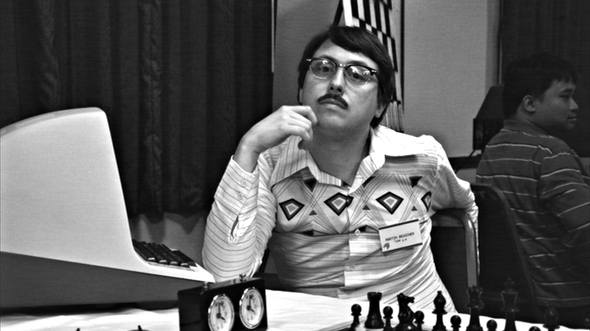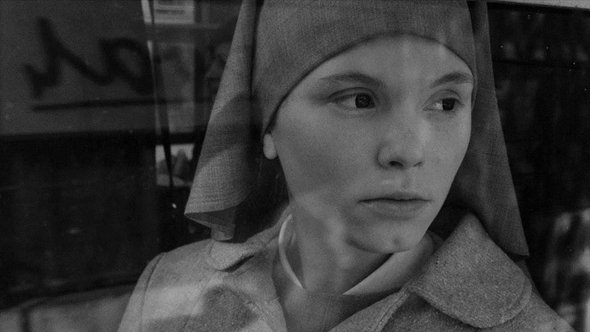It is
nearly impossible to sum-up over-riding themes in a year of cinema, but its
almost impossible to resist the temptation to do so. American cinema is nearly
always the easiest to do so, due to the availability of such films, so I have
attempted to place some re-occurring themes and matched them with corresponding films.
I have also listed some key films from around the world that have either made
an impact on cinema this year, or on me. This has meant some films mentioned I
have not seen, but deserve to be mentioned due to their impact on others.
American
cinema seems to have been mostly concerned with two, twinned themes. Isolation
and Technology, and Inequality and Celebrity/Excess. These themes are
unavoidable in modern day America, and therefore is of no surprise they have
often cropped up. These themes have also been occasional supported by other key
films from across the globe, but have been placed alongside American
counterparts to support the idea.
Isolation
Upstream Color (Carruth)
Long anticipated second feature by Carruth. Represents isolation and connection
through artificial means, all while only ever telling fragments of story at a
time. Key American independent film.
Gravity (Cuaron)
Most
clear-cut film about isolation, Gravity
contrasts the vastness of space with the emotions of one human. Perfect blend
of Hollywood scale and creativity.
Her
(Jonze)
Leviathan (Castaing-Taylor and Paravel)
Technology
The Worlds End (Wright)
Last
of the trilogy, The World’s End examines
how technology and commercialisation is removing the heart and soul of the
United Kingdom.
Computer Chess (Bujalski)
Incredibly creative, Bujalski’s latest feature looks at the fear of technology from the
80s, and how what seemed strange then, is beyond normal now. That’s all until
the ending…
Inequality
Elysium (Blompkamp)
Not as
great as District 9, but still able
to present more challenging ideas than most Hollywood blockbusters would ever
attempt to do. By taking on an extremely relevant subject matter in America
right now, Blompkamp was always likely to split audiences. His vision however
of the future is distinctive and beautiful. Both on Earth, and on Elysium.
The Purge (DeMonaco
Altogether ignored by critics, The Purge is an examination
on white-middle class America, and how it demonises the poor. Unafraid to
explore racism and prejudice. If Haneke made an American genre film.
12
Years a Slave (McQueen)
Captain
Phillips (Greenway)
Fruitvale
Station (Coogan)
The
Immigrant (Gray)
Celebrity and Excess
The Great Beauty (Sorrantino)
Wondering
and beautiful, The Great Beauty shows
post-Bunga Bunga Italy. Shows the hollowness of extreme wealth.
The Bling Ring (Coppola)
Celebrity
obsession. Coppola takes an interesting story and allows her actors the freedom
to really embrace all of their silliness and contradictions. The American dream
has become wanting more for nothing.
Pain and Gain (Bay)
Similar
themes in Pain and Gain to The Bling Ring. Dismissed due
to Bay being the director. Is funny, over the top, and slightly over-long,
however does a fantastic job at showing how the American dream has become
corrupted.
The
Wolf of Wall Street (Scorsese)
The Lone Ranger (Verbinski)
A film
not so much about excessiveness, but is the embodiment of the idea itself.
Unfair criticism for the film damaged from start, but has already seen some
retrospective consideration.
Key Asian
Wadjda
(Al-Mansour)
Sold
on the fact that it is the first Saudi film by a Woman, Wadjda has a lot more going
for it than just that. Funny, and heartfelt.
Shady
(Watanabe)
Biggest
unknown, seen at the Raindance Film Festival. Completely sucks you in. The
subtle tonal shifts throughout are incredibly done.
Stray
Dogs (Ming-liang)
Like
Father, Like Son (Koreeda)
A
Touch of Sin (Zhengke)
The
Act of Killing (Oppenheimer)
Topping
a number of End of Year lists, The Act of
Killing is perhaps the must-see documentary this year.
The Grandmaster (Kar-wai)
Blind
Detective (To)
North/South America
La Reconstruccion (Taratuto)
An Argentinian look at isolation, set in the deep
cold South. The performance of Diego Peretti is a stand-out.
From
Tuesday to Tuesday (Trivino)
Short Term 12 (Cretton)
Tom at the Farm (Dolan)
Prinsoners (Villeneueve)
Africa
Grigris
(Haroun)
Although
not as well received as previous effort, A
Screaming Man, it is still of note due to the fact it is the only African
film this year to break into the a main competition at this years festivals.
Mother
of George (Dosunmu)
Europe
Blue is the Warmest Colour (Kechiche)
Beneath
the controversy about the director/actress relationship, and the (shock horror)
lesbian roles, Blue is the Warmest Colour
is a perfectly pitched love/break-up story.
The
Past (Farhadi)
Bastards
(Denis)
Child’s
Pose (Netzer)
Under
the Skin (Glazer)
The
Selfish Giant (Bernard)
The
Double (Ayoade)
Ida (Pawlikowski)
Museum Hours (Cohen)
 Despite the backlash after its Palme D’or
win, Blue is the Warmest Colour remains
a powerful no holding back feature on how love comes and goes. Held together by
two fantastic leading performances, which Kechiche allows to flourish by using
constant close-ups of both Exarchopoulos and Seydoux.
Despite the backlash after its Palme D’or
win, Blue is the Warmest Colour remains
a powerful no holding back feature on how love comes and goes. Held together by
two fantastic leading performances, which Kechiche allows to flourish by using
constant close-ups of both Exarchopoulos and Seydoux. 

